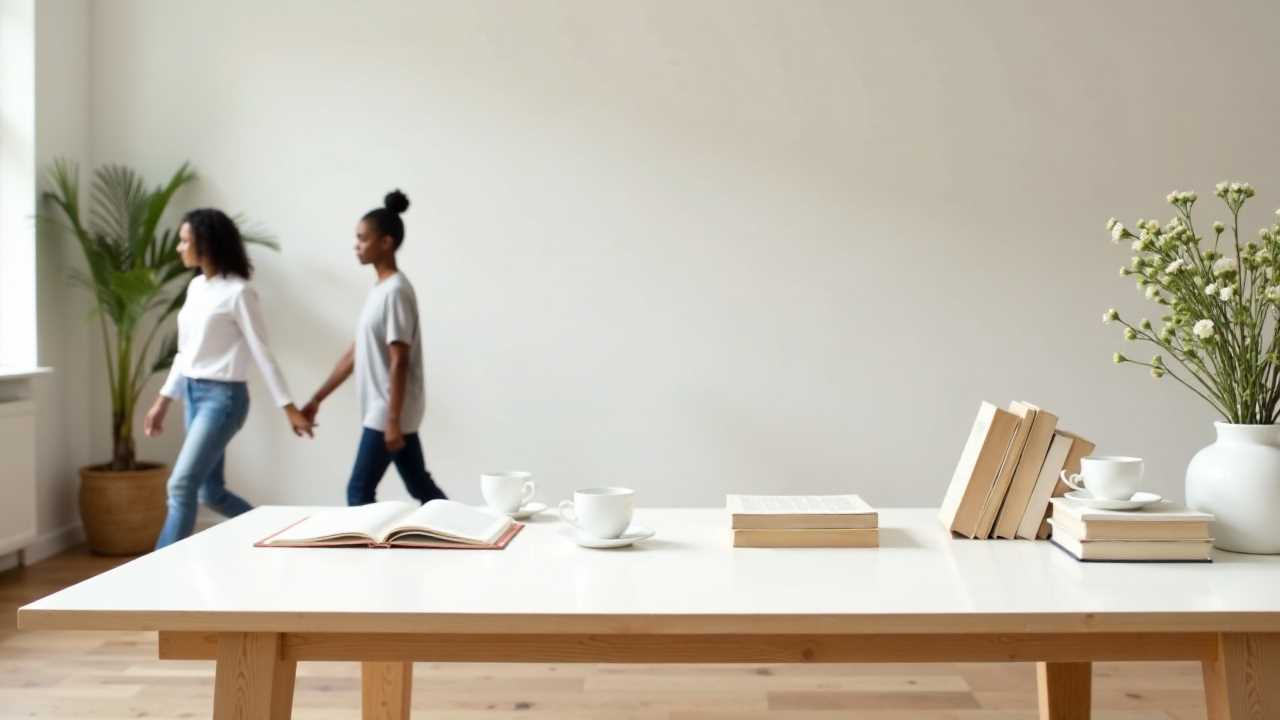
Understanding Minimalist Living
Minimalist living is more than just a trend; it is a lifestyle choice that prioritizes simplicity and intentionality. By focusing on what truly matters, individuals can cultivate a life that is rich in experiences rather than possessions. This approach encourages us to evaluate our surroundings and make conscious decisions about what we keep in our lives. The essence of minimalist living lies in the belief that freedom comes from letting go of excess and embracing a more meaningful existence.
The Power of Simplicity
Simplicity is at the heart of minimalist living. In a world filled with distractions and clutter, adopting a simple lifestyle allows us to focus on our core values and passions. By reducing the noise around us, we can create a serene environment that fosters mindfulness and clarity. This shift towards simplicity helps us to prioritize our time and energy on activities that bring joy and fulfillment.
In practical terms, simplicity can manifest in various ways, such as decluttering our homes, simplifying our schedules, and even streamlining our digital lives. Each small step towards simplicity contributes to a larger sense of peace and balance.
Intentionality in Daily Life
Living intentionally means making conscious choices that align with our values and goals. In the context of minimalist living, this translates to being deliberate about what we bring into our lives. Every item we own, every commitment we make, and every relationship we nurture should serve a purpose and contribute positively to our well-being.
Intentionality encourages us to reflect on our habits and routines. Are we spending our time on activities that truly matter? Are our possessions adding value to our lives, or are they merely taking up space? By asking these questions, we can cultivate a lifestyle that is aligned with our true selves.
The Art of Decluttering
Decluttering is a fundamental aspect of minimalist living. It involves systematically removing items that no longer serve a purpose or bring joy. This process can be both liberating and transformative. As we clear physical space, we often find that mental clarity follows suit.
To begin decluttering, we can start with one area of our home at a time. Assess each item and ask ourselves if it is essential or if it sparks joy. If it does not, it may be time to let it go. This practice not only creates a more organized living space but also instills a sense of accomplishment and freedom.
Mindfulness as a Core Principle
Mindfulness is integral to minimalist living. It encourages us to be present in the moment and fully engage with our experiences. By practicing mindfulness, we can cultivate a deeper appreciation for the simple joys in life. This can be as straightforward as savoring a meal, enjoying a walk in nature, or spending quality time with loved ones.
Incorporating mindfulness into our daily routines can help us resist the urge to accumulate unnecessary possessions. When we are mindful, we become more aware of our desires and can make choices that reflect our true needs rather than fleeting wants.
Sustainability and Minimalist Living
Sustainability is a natural extension of minimalist living. By adopting a minimalist mindset, we can make more environmentally conscious choices. This includes reducing waste, opting for quality over quantity, and supporting sustainable brands.
Minimalist living encourages us to think critically about our consumption habits. By choosing to invest in fewer, high-quality items, we can reduce our environmental footprint and contribute to a more sustainable future. This approach not only benefits the planet but also enhances our overall quality of life.
Finding Freedom Through Minimalism
One of the most profound benefits of minimalist living is the sense of freedom it brings. By shedding the weight of excess possessions and commitments, we create space for what truly matters. This newfound freedom allows us to pursue our passions, explore new opportunities, and live life on our terms.
As we embrace minimalism, we often find that our relationships deepen, our creativity flourishes, and our overall happiness increases. The freedom that comes from living intentionally and simply is a powerful motivator for many who choose this lifestyle.
Practical Steps to Embrace Minimalist Living
1. Assess Your Space: Take a close look at your living environment. Identify areas that feel cluttered or overwhelming and commit to decluttering them.
2. Set Intentions: Define what minimalist living means to you. Establish clear intentions that align with your values and goals.
3. Practice Mindfulness: Incorporate mindfulness practices into your daily routine. This can include meditation, journaling, or simply taking time to reflect on your day.
4. Choose Quality Over Quantity: When making purchases, opt for high-quality items that will last. This reduces waste and enhances your living space.
5. Engage in Sustainable Practices: Look for ways to reduce your environmental impact. This can include recycling, composting, and supporting eco-friendly brands.
6. Cultivate Freedom: Embrace the freedom that comes with minimalism. Allow yourself to let go of what no longer serves you and make room for new experiences.
Minimalist living is a powerful lifestyle choice that promotes simplicity, intentionality, decluttering, mindfulness, sustainability, and ultimately, freedom. By adopting this approach, we can create a life that is not only more fulfilling but also aligned with our core values. As we navigate the complexities of modern life, embracing minimalism offers a path to clarity, purpose, and joy. Let us embark on this journey towards a more intentional and meaningful existence, one step at a time.
 SportsHollywoodLifestyleFashionHome & GardenTrendsPrivacy PolicyTerms And Conditions
SportsHollywoodLifestyleFashionHome & GardenTrendsPrivacy PolicyTerms And Conditions
